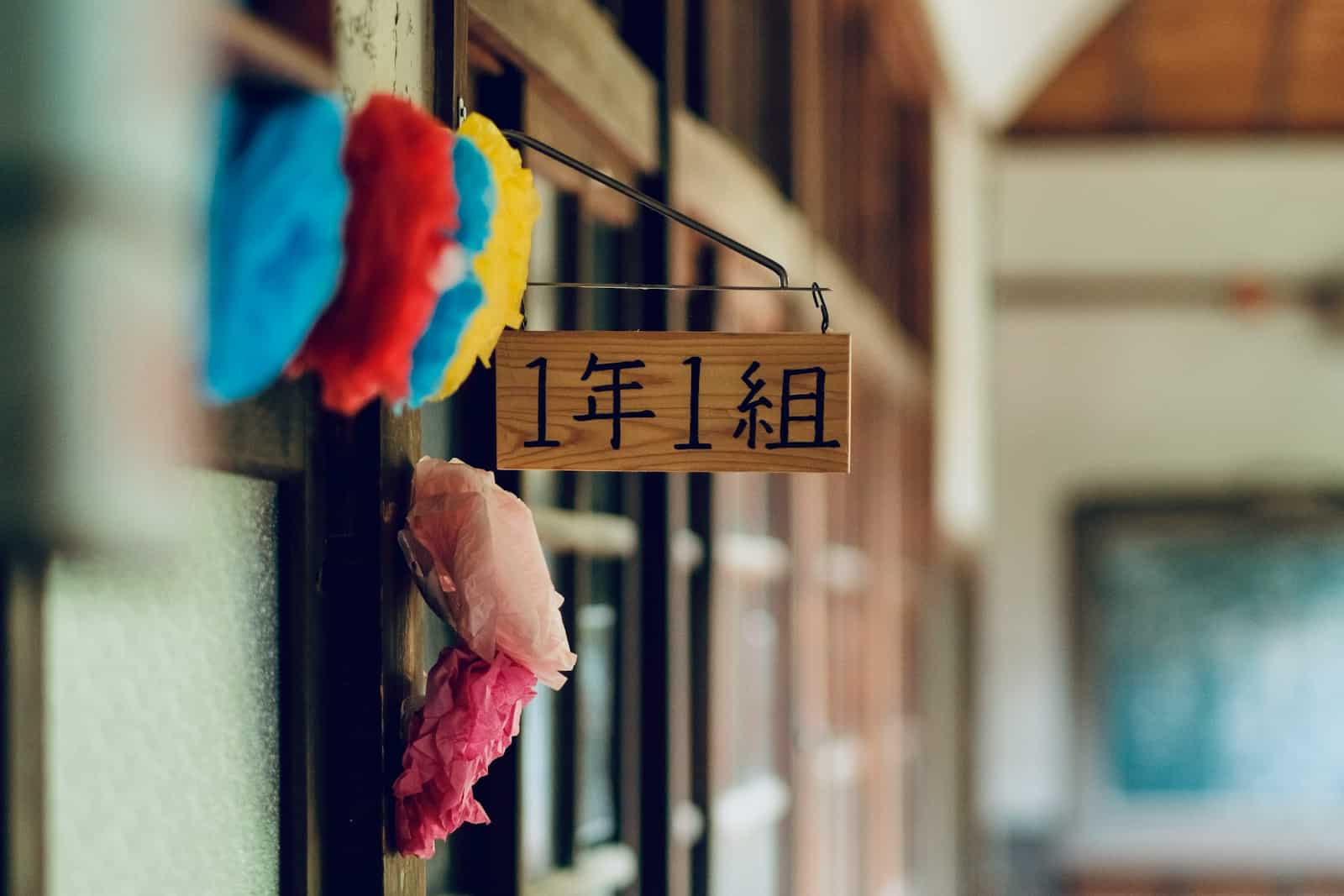You’ve finally decided to take the plunge and explore the teaching opportunities in Japan, but it’s easier said than done, right?
The good news is that this article tells you exactly how to overcome several of the most common obstacles, and includes cultural tips that will help you settle in to your new life in Japan more quickly.
Get more about life in Japan
Exploring Teaching Opportunities in Japan (Including the JET Program)
by Rob Dyer
Teaching opportunities in Japan
Firstly, let’s explore the reasons that Japan has so much appeal and interest to many people. To a typical tourist, Japan is stunning because it has a wide variety of landscapes, honourable and humble ancient traditions as well as technological marvels. But what could be the future for English teachers in Japan?

You’ll find plenty of advantages if you are planning on living in Japan for any length of time: first-class healthcare, efficient public transportation, delightful food, and exciting pop culture. But there is more.
TEFL (Teaching English as a Foreign Language) teachers will find that Japan is a safe country and may be pleasantly surprised by the salaries and perks this country offers.
Where to teach in Japan
To start working in Japan you first need to apply for your visa. This can be done depending on your situation.
Apply for a Working Visa if you already have a job lined up before arrival or get yourself a Working Holiday Visa which allows part-time work between 18-30 years old. Otherwise, choose a Tourist Visa which will give you enough time to search for a job but cannot be used once you’re employed.

Bureaucracy aside, there are plenty of TEFL opportunities abound in Japan. Holding a bachelor's degree is an advantage when applying for a visa. Previous teaching experience is not necessary to secure a job, but it can be helpful.
Here is where you could work, depending on your qualifications and experience.
Independent English language schools - eikaiwa
Working at independent English language schools, commonly known as eikaiwa, is a popular choice. Typically, you can expect to teach 5 to 8 hours daily, catering to 10-15 students per class. Eikaiwas come in two types: large chains and smaller family-run establishments.
Large chain eikaiwa, with global branches
These often provide better salaries, perks, and professional development opportunities. However, teachers may be required to sell products, such as books or additional courses, to students. On the other hand, small conversation schools in rural areas offer a distinct experience, with limited budgets but more freedom for teachers.
International school eikaiwa
International schools target students with intermediate to advanced proficiency levels, demanding a minimum of two years of teaching experience from instructors. These schools offer competitive salary packages due to the high demand for positions.

State schools - Assistant Language Teachers
While preferring Japanese teachers, state schools do hire international Assistant Language Teachers (ALT) to bring a practical approach to English learning. ATLs, especially in rural areas, expose students and colleagues to their culture. Expect large classes and around 10-20 days off per year, plus national holidays.
JET Program - Japan Exchange and Teaching
Government-led programs like JET (Japan Exchange and Teaching) are popular for their high salaries and contract renewals of up to 5 years. However, there are limitations on how to create a professional JET program Japan. While non-native English teachers can apply, there's a 40-year age limit for JET participants.
University positions
University positions are highly coveted, offering the highest teaching salaries and up to 3 months of holidays. Requirements are stringent, including a master's degree in a relevant field and substantial teaching experience.
VIDEO: I Taught English Abroad: How Ellie made it happen in Japan
The charm of a unique culture
There is no denying that living in a country with a very different culture from yours can be equally as challenging as it can be fascinating. From interactions in a social environment to relations in the workplace with colleagues and students, you will quickly discover how your mannerisms and the words you use can lead to misunderstandings.
To avoid any confusion or, even worse, offending someone, keep in mind these few points:

Body language
Posture holds significance in Japan, so standing or sitting up straight is a sign of respect. Avoid slouching or putting your hands in your pockets. Also, be aware that Japanese hand gestures differ from those in your home country. For more practical tips on travelling in Japan when you don't speak Japanese read this post.
Respect
Japanese culture values respect, not just toward individuals but also their heritage, culture, and country, including political and educational systems.
Saying ‘no’
A direct 'no' can be perceived as disrespectful. That’s why many Japanese people avoid a straightforward answer and might say they'll check with their boss, which often implies a negative response.
Asking for clarification
Unlike Western societies where asking questions is encouraged, in Japan, it might cause embarrassment and be seen as offensive. Admitting a lack of understanding may be interpreted as the speaker wasn't clear.

Making mistakes
Fear of embarrassment can discourage students from openly admitting mistakes. You’ll notice that many Japanese students may hesitate to participate in English conversations because of this.
However, don't let these cultural nuances dampen your spirits. Japanese students can be caring and appreciative of your efforts, always eager to discover more about other cultures.
SEE ALSO: Top 7 Etiquette Tips For Travel in Japan
What to be aware of
Japan is a beautiful and fascinating country, but it might not be for everyone. Here are the main drawbacks of living in Japan:
- The cost of living can be very high. Although TEFL salaries in Japan can be good, this country can be very expensive. Especially if you live in large urban areas, things like accommodation and imported quality goods can reach exorbitant costs.
- The balance between work and personal life is virtually non-existent. It’s common for employees at any level to work up to 12 hours a day.
- Natural disasters are frequent. In Japan, earthquakes of different magnitudes occur frequently due to its location on a tectonic plate.
If you'd like more practical advice on relocating to Japan for teaching work, I recommend also reading my post A Practical Guide To Teaching English In Japan: 5 Key Considerations.
Conclusion: A personal and professional journey
Teaching opportunities in Japan can lead to an exciting journey on a personal and professional level.
As you learn about this unique culture from your colleagues and your students, you’ll explore a country full of charming traditions and a jaw-dropping landscape.

In Japan, you’ll probably find that everything is different from what you’re used to, but that shouldn’t be a cause of concern. Showing sincere respect towards your home away from home and its inhabitants is a must while learning a few sentences to show politeness can go a long way.
As for your TEFL career, there are plenty of opportunities in Japan, from independent language schools to international schools, state schools, government programs like JET, and sought-after university positions. Each option has its requirements and rewards, so you can choose what suits you best.
Do you have experience of working or teaching in Japan? If so, share your experiences by leaving a comment below.

About the Author
A writer and publisher from England, Rob has been exploring Japan’s islands since 2000. He specialises in travelling off the beaten track, whether on remote atolls or in the hidden streets of major cities. He’s the founder of TheRealJapan.com.
Resources
Further Reading
7 Secrets To Getting Better English Teaching Work In Japan
A Practical Guide To Teaching English In Japan: 5 Key Considerations
From Yorkshire To Akashi: Interview With Dan Hewitt aka JaDan
Living In Japan – Travel Tips From The Real Japan
The Japan Exchange and Teaching (JET) Programme
Ministry of Foreign Affairs of Japan - Visa Information
More Planning Resources
My List of Helpful Resources
Recommended Japan Travel Resources
The Real Japan Travel Store
If you enjoyed this article please share this image online:


Useful article for those considering teaching in Japan. I gained a total love of Japan while teaching English for a year back in 1999 into 2000. Thrilled my husband loves Japan too and we’ve been able to visit several times.
That’s nice to hear Jo. Teaching in Japan certainly isn’t for everyone, but can still be a good way into living in the country I believe. It at least puts you in at the deep end of working life in Japan!